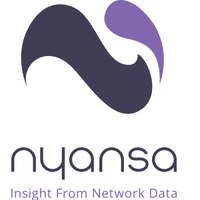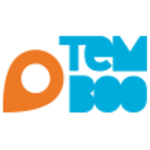Description

Nyansa

Oracle Cerner
Comprehensive Overview: Nyansa vs Oracle Cerner
Nyansa and Oracle Cerner are both significant players in the technology and healthcare sectors, respectively, each serving different functions and markets. Here's a detailed overview of each:
Nyansa
a) Primary Functions and Target Markets: Nyansa, which was acquired by VMware in early 2020, developed the Voyance platform, a prominent solution in the realm of network analytics and management. Its primary functions include:
- Network Performance Monitoring: Nyansa provides comprehensive analytics to monitor and enhance network performance, offering insights into user experience and application performance.
- Troubleshooting and Diagnostics: The platform aids in diagnosing network issues, offering automated insights to resolve problems efficiently.
- Security Monitoring: It provides visibility into network security, detecting anomalies and potential threats to secure network integrity.
The target market for Nyansa is primarily enterprises with complex IT infrastructures, including sectors like education, healthcare, retail, and other large organizations that require robust network performance and security solutions.
b) Market Share and User Base: As part of VMware's portfolio after acquisition, Nyansa's technology is integrated into VMware's larger suite of services aimed at network management and security. Specific market share data on Nyansa as an independent entity is less prominent post-acquisition. However, VMware's significant presence in the enterprise IT market indicates that Nyansa's solutions reach a broad user base, particularly among organizations reliant on VMware's networking solutions.
c) Key Differentiating Factors:
- Integration with VMware Products: Nyansa is closely integrated with VMware's networking solutions, providing enhanced features for existing VMware customers.
- AI and Machine Learning Capabilities: Nyansa's Voyance platform leverages AI and machine learning to provide automated analytics and predictive insights.
- Focus on User Experience: Nyansa is distinct in its focus on user experience within the network context, offering metrics and insights that help businesses understand the end-user impact of network performance.
Oracle Cerner
a) Primary Functions and Target Markets: Oracle Cerner is a global leader in health information technology solutions, providing a suite of applications aimed at healthcare organizations. Its primary functions include:
- Electronic Health Records (EHR): Cerner's EHR system is designed to streamline clinical workflows and improve patient care efficiency.
- Health Information Exchange: Cerner facilitates the secure sharing of health information across different healthcare entities.
- Data Analytics and Population Health Management: Oracle Cerner provides tools to analyze healthcare data to improve outcomes and manage population health better.
The target market for Oracle Cerner includes hospitals, clinic networks, and other healthcare facilities worldwide that require comprehensive IT solutions to manage patient information and healthcare operations efficiently.
b) Market Share and User Base: As one of the leading providers of healthcare IT solutions, Oracle Cerner commands a substantial share of the global EHR market. It competes with other giants like Epic Systems. Oracle Cerner's user base spans thousands of healthcare organizations, including major hospital systems internationally.
c) Key Differentiating Factors:
- Comprehensive Healthcare Solutions: Oracle Cerner offers an end-to-end solution for healthcare IT needs, from patient records to data analytics.
- Scalability and Flexibility: The platform supports a wide range of healthcare settings, adaptable to various scales and requirements.
- Integration with Oracle's Cloud Infrastructure: Following Oracle's acquisition, Cerner benefits from integration with Oracle's robust cloud infrastructure, providing enhanced data management and security features.
Conclusion
Comparing Nyansa and Oracle Cerner:
- Industry Focus: Nyansa's focus on network performance and security contrasts with Oracle Cerner's dedicated healthcare IT solutions.
- Technological Integration: While Nyansa is heavily integrated into VMware's ecosystem, Oracle Cerner benefits from Oracle's cloud capabilities.
- Target Markets and Applications: The primary markets are distinct, with Nyansa targeting broader enterprise IT needs and Oracle Cerner addressing specific healthcare industry requirements.
These differences outline how each company tailors its products and services to meet the unique demands of their respective markets, leveraging technology to optimize their core functions.
Contact Info

Year founded :
2009
Not Available
Not Available
Ghana
Not Available

Year founded :
Not Available
Not Available
Not Available
Not Available
Not Available
Feature Similarity Breakdown: Nyansa, Oracle Cerner
To provide a feature similarity breakdown for Nyansa and Oracle Cerner, we must first understand that these two companies offer solutions in different domains. Nyansa, which has been acquired by VMware, focuses on network analytics and monitoring, while Oracle Cerner (known for its acquisition by Oracle) is a leader in health information technology, particularly electronic health records (EHR). Despite their different industry focuses, a comparison can still be drawn in terms of general enterprise software features.
a) Core Features in Common
-
Data Analytics:
- Nyansa offers network performance and user experience analytics, leveraging AI to improve IT operations.
- Oracle Cerner provides analytics for healthcare data to enhance patient care and operational efficiency.
Both prioritize providing actionable insights through data analysis.
-
Cloud Integration:
- Both platforms offer cloud solutions to store and process data, although the types of data and the nature of processing differ significantly.
-
Security:
- Each has robust security features tailored to their specific fields to protect sensitive data, whether it’s enterprise network data or patient health information.
-
Integration Capabilities:
- Both products are designed to integrate with other software platforms, facilitating smoother workflows.
b) User Interface Comparison
Comparing user interfaces directly is challenging due to the disparate nature of the fields they serve:
-
Nyansa:
- Typically features a dashboard-style user interface focusing on network performance metrics, alerts, and user experience scores. The UI is designed for IT professionals and network administrators, prioritizing information clarity and quick access to problem areas.
-
Oracle Cerner:
- Offers a UI tailored for healthcare professionals, including doctors, nurses, and administrative staff. Its design emphasizes patient information, clinical data, and streamlined workflow to support efficient healthcare delivery. The interfaces tend to be more data-rich, reflecting detailed patient records and clinical analytics.
c) Unique Features
-
Nyansa:
- Network Behavior Analytics: Unique focus on AI-driven insights into user behavior and network performance, especially valuable for large organizations with complex IT infrastructure.
- IoT Device Management: Given its roots in networking, it has more advanced features for monitoring and managing Internet of Things (IoT) devices from a network perspective.
-
Oracle Cerner:
- Comprehensive Healthcare EHR System: Offers an exhaustive electronic health record system widely used in hospitals and clinics, rich with clinical documentation, patient data management, and interoperability features.
- AI-Powered Health Insights: Enhanced capabilities for predictive analytics tailored specifically for healthcare outcomes and operational efficiencies.
In conclusion, while there are some similar high-level features like analytics and security, Nyansa and Oracle Cerner cater to entirely different user needs with specific features and interfaces designed for professionals in network management and healthcare, respectively. Their unique capabilities clearly set them apart in their respective markets.
Features

Not Available

Not Available
Best Fit Use Cases: Nyansa, Oracle Cerner
Nyansa and Oracle Cerner are two platforms that serve different purposes and industries, each offering various features suited for specific use cases.
Nyansa
Nyansa (pronounced "knee-ans-sah") is best known for its network analytics platform, which primarily serves IT departments by providing insights into user, device, and network performance. Here's how it fits into different business projects:
a) Best Fit Use Cases for Nyansa:
-
Enterprise IT Departments: Large enterprises looking to optimize their network performance can leverage Nyansa's analytics to pinpoint issues, enhance security, and improve user experiences.
-
Educational Institutions: Universities and colleges with large, complex campus networks can use Nyansa to manage network performance and support the myriad of devices and applications used by students and faculty.
-
Healthcare Facilities: Hospitals and clinics can benefit from Nyansa by ensuring the reliability and security of networked medical devices and patient data flows.
-
Retail Businesses: Retailers with multiple locations can use Nyansa to ensure consistent network performance across stores, which is crucial for point-of-sale systems, inventory management, and customer Wi-Fi services.
How it Caters to Different Industries/Company Sizes:
- Industries: Nyansa is broadly applicable to any industry with complex networking needs, such as education, healthcare, retail, and large enterprises.
- Company Sizes: It is particularly beneficial for medium to large-sized organizations with extensive network infrastructure.
Oracle Cerner
Oracle Cerner specializes in health information technology solutions, offering products and services that enable healthcare providers to deliver more efficient and effective patient care.
b) Preferred Scenarios for Oracle Cerner:
-
Hospitals and Health Systems: Large hospital networks and health systems requiring comprehensive electronic health record (EHR) systems can use Oracle Cerner for integrated patient data management.
-
Clinics and Ambulatory Care: Smaller clinics and outpatient services benefit from Oracle Cerner’s scalable solutions that offer an integrated approach to patient tracking and scheduling.
-
Specialty Practices: Practices like cardiology or orthopedics needing specialized care solutions can leverage Oracle Cerner's customizable modules tailored to specific clinical workflows.
-
Government and Public Health: Public health organizations looking to improve population health management can utilize Oracle Cerner's analytics and health management tools.
How it Caters to Different Industries/Company Sizes:
- Industries: Primarily focused on the healthcare industry, Oracle Cerner serves a broad range of healthcare providers, from primary care clinics to large hospital systems.
- Company Sizes: While it caters to both small medical practices and large hospital networks, the scalability of Oracle Cerner makes it a suitable option for any healthcare provider looking to streamline operations and enhance patient care.
In summary, Nyansa and Oracle Cerner cater to distinct niches, with Nyansa focusing on network analytics across various industries and Oracle Cerner specializing in healthcare IT solutions. The choice between the two depends heavily on the industry and specific needs of the business or project.
Pricing

Pricing Not Available

Pricing Not Available
Metrics History
Metrics History
Comparing undefined across companies
Conclusion & Final Verdict: Nyansa vs Oracle Cerner
To provide a conclusion and final verdict regarding Nyansa and Oracle Cerner, we need to evaluate certain key factors such as functionality, ease of use, integration capabilities, cost, customer support, and specific use-case scenarios for each product. Here’s a detailed breakdown:
a) Best Overall Value:
Determining which product offers the best overall value depends largely on the specific needs and context of the user or organization.
-
Nyansa is particularly valuable for organizations seeking robust network analytics and user experience monitoring. It excels at delivering insights into network performance, user experience, and security-related metrics, making it ideal for IT teams focused on network management and optimization.
-
Oracle Cerner, on the other hand, is an industry leader in electronic health records (EHR) and healthcare IT solutions. It offers comprehensive tools for health information management, patient engagement, and clinical operations. This makes it valuable for healthcare organizations looking to improve patient care and streamline operations.
Overall, if the primary focus is on healthcare IT, particularly within clinical settings, Oracle Cerner is likely to offer better value. However, for organizations focusing on network performance across various industries, Nyansa may present more value.
b) Pros and Cons:
Nyansa:
-
Pros:
- Excellent network performance monitoring capabilities.
- Provides comprehensive user experience analytics.
- Integration with various network devices and platforms.
- Suitable for varied industries beyond healthcare.
-
Cons:
- Limited to network monitoring solutions; not suited for specialized healthcare IT needs.
- May require additional products or services for complete IT management.
Oracle Cerner:
-
Pros:
- Comprehensive suite of healthcare IT solutions.
- Strong focus on patient care and clinical operations.
- Extensive integration with healthcare systems and compliance standards.
- Global presence and extensive support network.
-
Cons:
- Can be costly, especially for small to mid-sized healthcare providers.
- Complexity of implementation and user training.
- Primarily tailored for healthcare industries, limiting use in other domains.
c) Recommendations for Users:
-
Assess Needs: Begin with a thorough assessment of your organizational needs. If your primary requirement is network management across a diversified industry, Nyansa is preferable. For those in the healthcare sector needing robust EHR and clinical management solutions, Oracle Cerner is the better fit.
-
Budget Considerations: Consider the total cost of ownership. Oracle Cerner, while providing extensive functionality, may have higher costs of implementation, maintenance, and training. Ensure that these align with your budget constraints.
-
Scalability and Integration: Consider the scalability of each product in line with your projected growth. Also, investigate how well each product integrates with your existing systems.
-
Seek Demos and Trials: Engage with both products through demos or trial versions if available. This allows for a practical assessment of user experience and functionality.
-
Consult Stakeholders: Involve key users and stakeholders in the decision-making process to ensure that the final selection meets the diverse needs of the organization.
In conclusion, the choice between Nyansa and Oracle Cerner should be guided by the specific industry focus, organizational size and needs, and long-term strategic goals. While Oracle Cerner is unmatched in healthcare IT, Nyansa offers a niche solution specifically tailored to network performance analytics.
Add to compare
Add similar companies



